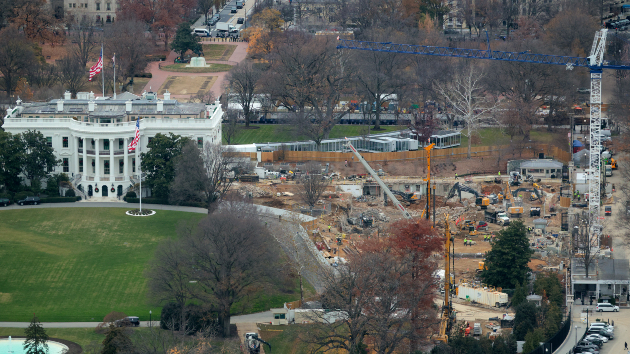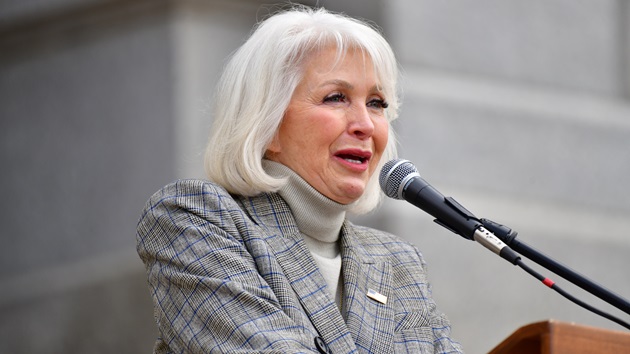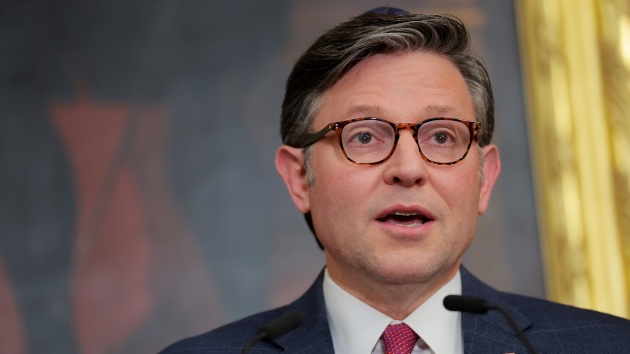Biden to award Medal of Honor to Civil War heroes, 162 years later
Written by ABC Audio ALL RIGHTS RESERVED on July 3, 2024
(WASHINGTON) — Two Union soldiers who 162 years ago took part in one of America’s first special operations will be posthumously awarded the Medal of Honor on Wednesday.
Descendants of Pvt. George Wilson and Pvt. Shadrach received a long-awaited call from the White House telling them the Civil War heroes would be awarded the nation’s highest military honor for “gallantry and intrepidity” in defense of the Union.
President Joe Biden was on the other line, they said, inviting Theresa Chandler, the great-great-granddaughter of Pvt. Wilson, and Gerald Taylor, the great-great-nephew of Pvt. Shadrach, to accept the medal on behalf of the men who, as a part of a group of 24 volunteers, snuck behind Confederate lines in an act of unprecedented bravery.
The Union soldiers — acting as spies in civilian clothing — managed to penetrate 200 miles into Confederate territory, where they commandeered a train — “The General” — and drove it 87 miles from Georgia to Tennessee.
In what became known as “The Great Locomotive Chase,” on April 12, 1862, the Union raiders destroyed Confederate railroad tracks and telegraph lines — earned 19 of the men Medals of Honor, becoming the first group of Army soldiers to receive it.
The ambitious plot, despite wreaking havoc, failed. The soldiers were captured. Some escaped and received their medals after the war, while a group of eight of the raiders — including Wilson and Shadrach — were tried and hanged by the Confederacy.
Because of what historians attribute to an oversight, Wilson and Shadrach never received the award posthumously.
Ron Shadrach, a descendant of Pvt. Shadrach, who was only 21 when he volunteered for the mission, and historian Brad Quinlon, teamed up to push Shadrach and Wilson’s case. Text from a 2008 act of Congress even cleared the way for Wilson and Shadrach to be honored, but for reasons resembling “red tape,” some family said, the call simply never came.
Shadrach and Quinlon met in 2012 and made their case for 12 years, but even before them, a relative of Pvt. Shadrach was sending letters to President Jimmy Carter.
At the outset of the Biden Administration, two former generals — one a four-star — joined Shadrach and Quinlon’s efforts.
Quinlon believes the clandestine mission, which the White House describes as one of the first special operations in United States history, if successful, would have shortened the Civil War by as long as two years.
“I mean these were common citizens — a laborer, a carpenter,” he said.
“They enlisted. They weren’t drafted; they enlisted voluntarily. And then all of a sudden you’re getting the word, you know, we’re asking for volunteers to come do what? Go in to a hundred miles of Confederate territory to steal a train. They stayed on. They were given a chance, they could have left after that, but they stayed on.”
“I guess, unless we’ve really done it, do we really know what courage that took?”
Before they were hanged, Pvt. Wilson is reported to have given a brief speech from the gallows in which he said he did not regret his action to help save the Union.
“He proclaimed that they would yet see the flag of the United States wave over them again,” Ron Shadrack said.
Two years later, they would.
Shadrack labored over the case for more than 12 years to rectify the historical record, but, above all, he said, he did so in service of his ancestor’s sacrifices.
“We can’t really comprehend what they went through,” the Ohio native said, a bout of imprisonment that including lashing and torture.
“I had wanted to serve my country, and I hadn’t,” Shadrack said. “And so now I’ve been able to do this…” he said, choking up, seemingly reckoning with this moment – a present day that would pay tribute to a day 162 years ago for which he has so long fought.
“And I think it’s, it’s something that any ordinary American would do,” he said. “It’s what we do.”
Quinlon, who in his work has studied the acts of Medal of Honor recipients, said the award — given to some 3,500 warfighters in U.S. history — has documented the American story on the battlefield.
“I wouldn’t have taken the project on if I didn’t feel it was the right thing to do. I understand the Medal of Honor. I understand where it stands today with our military. And every military person looks up to a Medal of Honor recipients. Even generals take a seat to a Medal of Honor recipient,” he said.
A future Medal of Honor recipient saved Quinlon’s father’s life in the Philippines in World War II, losing his life as he fought off the Japanese.
“I am here because of what William Shockley did on March 31st, 1945. I understand the valor and sacrifice of the Medal of Honor,” Quinlon said.
Copyright © 2024, ABC Audio. All rights reserved.







